Anglo-Saxon coin plotters Craig Best and Roger Pilling jailed
- Published
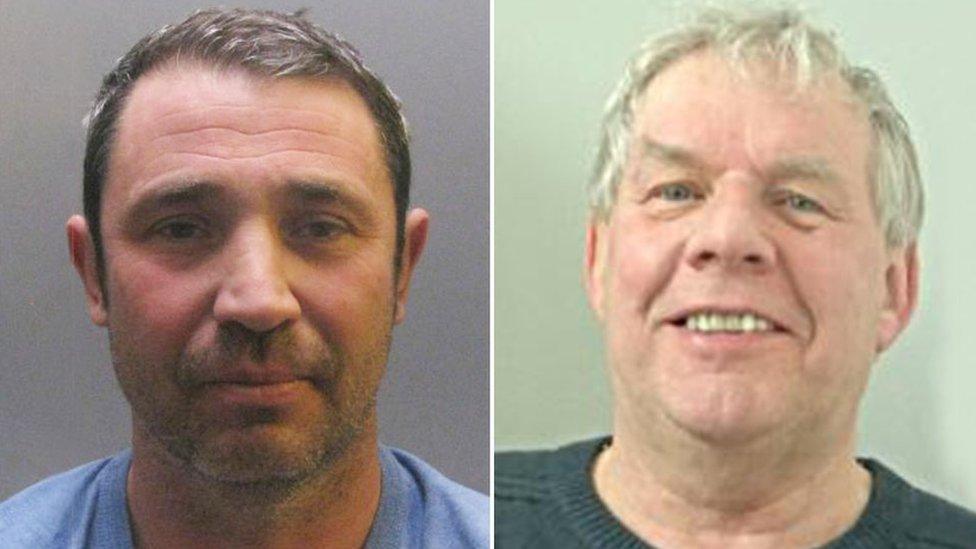
Craig Best and Roger Pilling were jailed for
Two men who tried to sell 44 rare Anglo-Saxon coins worth £766,000 have each been jailed for five years.
Craig Best, 46, and Roger Pilling, 75, were caught in a police sting in May 2019, Durham Crown Court heard.
The coins are thought to be part of a multimillion-pound haul buried by the Vikings and should have been handed to the Crown to be declared treasure.
Best, from County Durham, and Pilling, from Lancashire, were found guilty of conspiring to sell criminal property.
They were both jailed for five years and two months.
The coins are thought to have been part of the Herefordshire Hoard, a haul of about 300 coins found by two different metal detectorists in 2015.
In 2019, the two discoverers were jailed for selling the items and not declaring them as "treasure" under the Treasure Act 1996.
Prosecutor Matthew Donkin said Best, of South View, Bishop Auckland, and Pilling, of Loveclough, near Rawtensall, were trying to sell the silver coins on the black market to buyers outside the UK and asked for payment in cash, which would mean there would be no record of their existence or whereabouts.
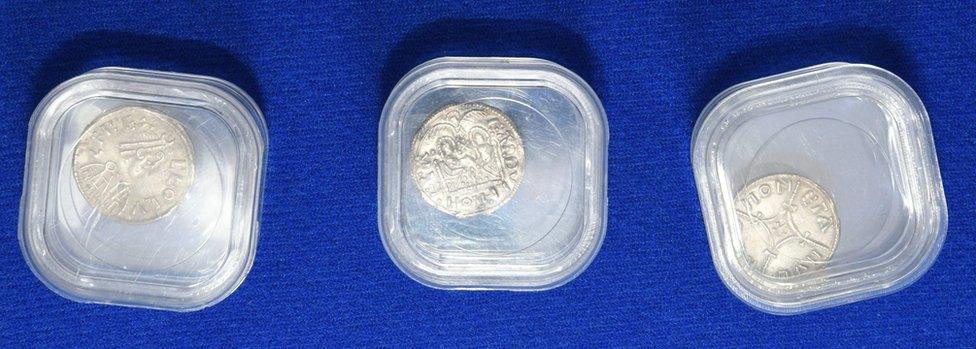
Experts say the coins add to understanding of political history in England in the 9th Century
While 44 coins were found in the men's possession, the court heard Pilling had photographed two further coins valued at more than £100,000 whose whereabouts are now unknown.
Mr Pilling, who Judge James Adkin said had "collected precious objects for the whole of his life", claimed the fragile coins broke when he dropped and stood on them so they were binned.
Mr Donkin said the "heritage" value of the coins should be considered as well as their monetary worth.
In mitigation, Pilling's lawyer Sharon Watson said he was a "pillar of the society" who was a "hard-working, generous and loving" family man and his wife was "devastated" by him being jailed.
Ms Watson said there was a "naivety" and "lack of criminal sophistication" shown by the men.
Stephen Garbett, for Best, said it had been "heart-breaking" for his client's family who were "also going to suffer" by his imprisonment.
'The nation's loss'
HHJ Adkin said Pilling was the "brains behind the operation" and bought the coins on the "black market" in 2016.
The judge said he was sure Pilling knew the significance of the coins and that they could not be sold on to a legitimate UK buyer as their importance would quickly be realised and reported.
Pilling contacted Best who had a "chequered past" and American contacts who might buy them, the judge said.
Best attempted to sell them to a US-based expert who notified historians at the Fitzwilliam Museum in Cambridge with the police ultimately being informed.
Best was caught trying to sell the coins to undercover officers in a sting operation at the County Hotel in Durham in May 2019.
The judge said if Pilling and Best had succeeded in their plan the coins, which were rare and important artefacts from British history, were "likely to have been lost to the nation forever".
He also said he didn't accept the two missing coins had been damaged and believed they had been "hidden away".
One of the coins worth £85,000 would have been the most valuable in Pilling's collection and it would have been an "odd coincidence" for that to be one the that was destroyed, the judge added.
He also said both men told "many lies" throughout the investigation and trial and described their efforts to cover their tracks as "amateurish".

Follow BBC North East & Cumbria on Twitter, external, Facebook, external and Instagram, external. Send your story ideas to northeastandcumbria@bbc.co.uk, external.
- Published27 April 2023
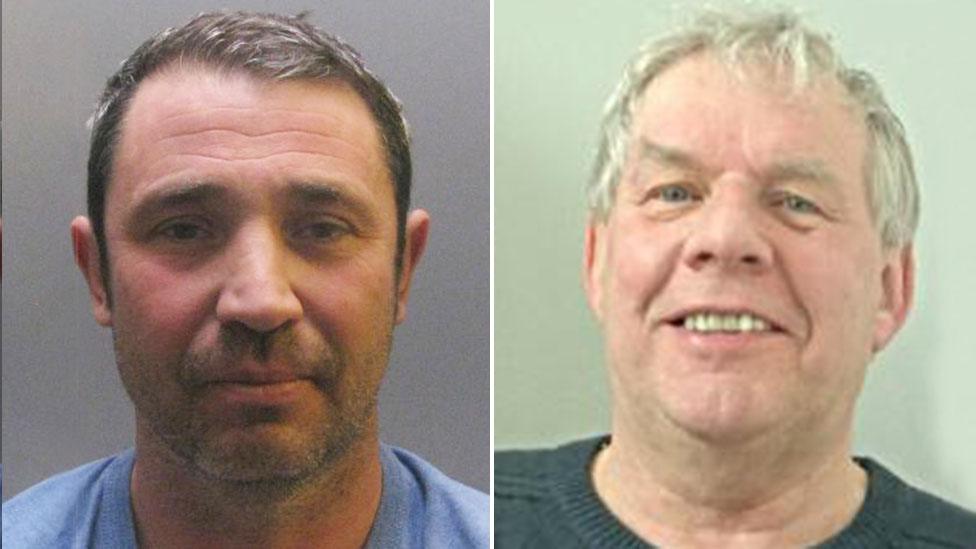
- Published24 April 2023
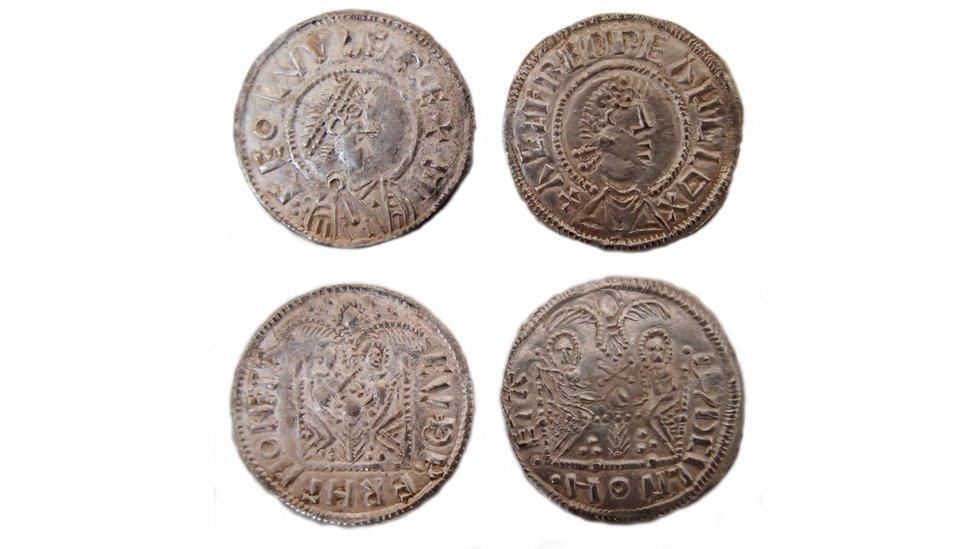
- Published12 April 2023
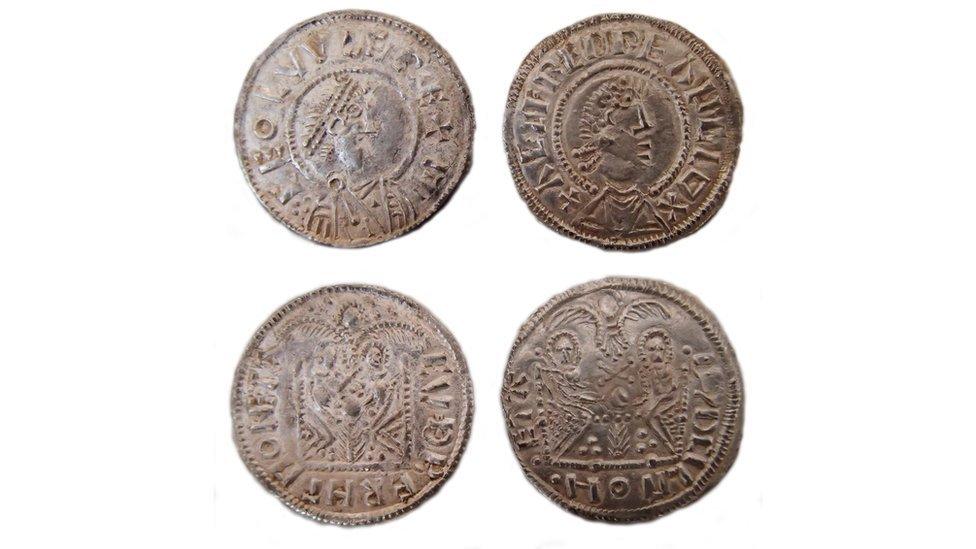
- Published11 April 2023
